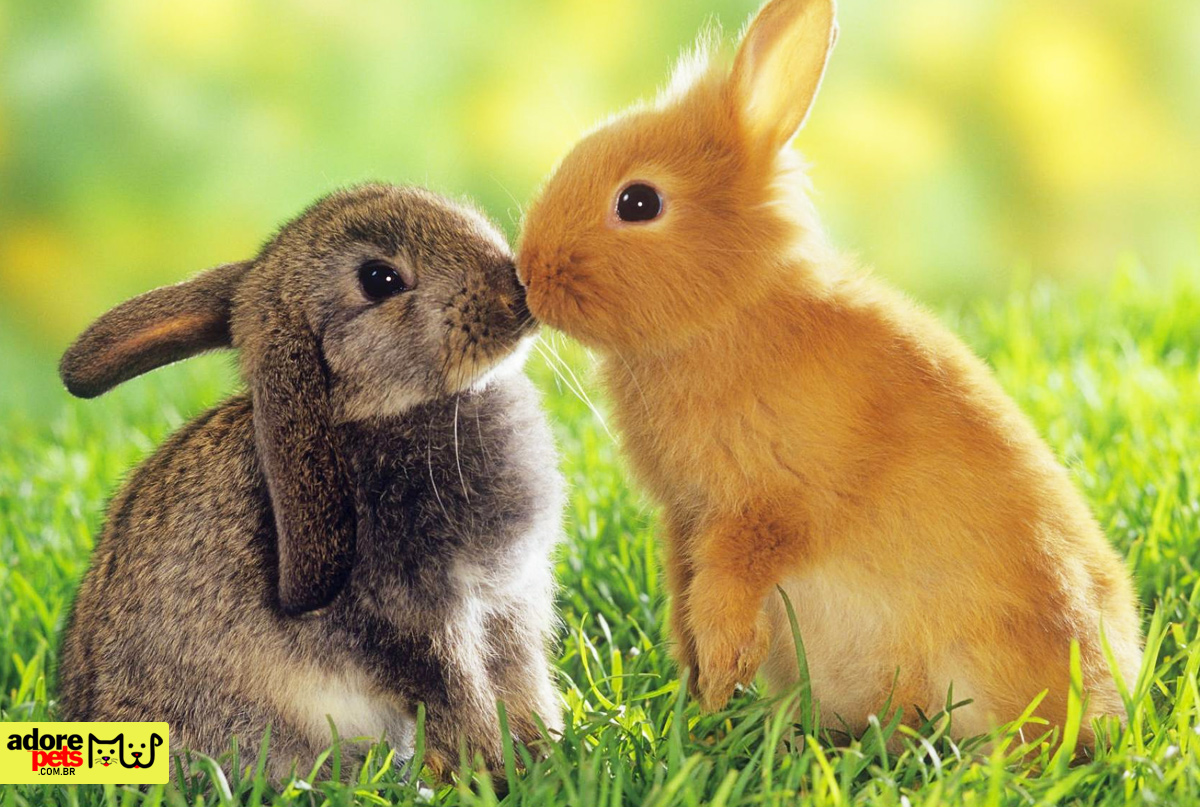But before embarking on this experience, there are some things you need to know about having and raising a rabbit as a pet. In this article, we will tell you everything you need to know to have a happy and healthy bunny at home.
The origin of rabbits
Rabbits originate from Europe and Africa, where they lived in underground burrows called warrens. They were domesticated about 2,000 years ago by the Romans, who raised them for food and fur. Over time, rabbits spread around the world and became popular as pets, especially in England, where they were considered symbols of luck and fertility.
Today, there are more than 50 breeds of domestic rabbits, varying in size, color, fur type, and ear shape. Some of the most well-known breeds include: mini lop, lionhead, angora, Dutch, rex, and fuzzy lop.

The diet of rabbits
Rabbits are herbivores, which means they exclusively eat plants. The foundation of a rabbit's diet should be hay or grass, which is rich in fiber and aids in digestion and dental health. These foods should always be available in the rabbit's enclosure.
In addition to hay and grass, rabbits can also eat specific pellets formulated for them, containing essential vitamins and minerals. Pellets should be offered in small amounts according to the manufacturer's and veterinarian's guidelines.
Rabbits also love fresh fruits and vegetables, which should be gradually introduced into their diet. Some options include: apple, banana, carrot, lettuce, kale, parsley, and mint. But be cautious: not all vegetables are suitable for rabbits. Avoid giving garlic, onion, potato, tomato, cabbage, and broccoli, as they can cause gas and diarrhea.
Basic care
Having a rabbit as a pet requires special care to ensure the well-being of the animal. Here are some tips:
- Choose a spacious and comfortable cage for your rabbit, with a litter tray lined with sawdust or cat litter. Change the litter daily and clean the cage weekly.
- Provide appropriate toys for your rabbit to play with and expend energy. Rabbits love to chew on wooden or rope objects, which also help keep their teeth healthy.
- Allow your rabbit to roam around the house for a few hours each day under supervision. Rabbits are curious and exploratory animals that need exercise and mental stimulation. However, be cautious of electrical cords, toxic plants, and sharp objects that could harm them.
- Regularly brush your rabbit's fur to prevent the formation of knots and hairballs in their stomach. Rabbits groom themselves with their tongue, but they can ingest hair that may cause intestinal blockage. Brushing also serves as a form of affection and strengthens the bond between you and your pet.
- Take your rabbit to the veterinarian periodically for routine check-ups and vaccinations. Rabbits can contract diseases like myxomatosis and viral hemorrhagic disease (VHD), which can be fatal. Vaccination is the best preventive measure.
- Spaying or neutering your rabbit is an important step to prevent unwanted reproduction and health problems such as tumors and infections. Spaying or neutering can be done starting from 4 months of age, both in males and females.
Having and raising a rabbit as a pet is an incredible adventure that will bring you joy and learning. Rabbits are sensitive, intelligent, and affectionate animals that can become great friends. But remember: they are living beings that require care, respect, and love. If you are willing to provide all of that to your bunny, you can be sure that they will reward you with lots of cuteness and gratitude.
Curiosities
Did you know that rabbits enjoy chewing on furniture, carpets, wires, and even walls? This is because rabbits' teeth continuously grow, and they need to wear them down to avoid problems. Therefore, it's important to offer suitable toys for your rabbit to chew on, such as wood and rope. Additionally, you can protect your furniture with covers or barriers and avoid leaving your rabbit alone in rooms that aren't rabbit-proof.
Rabbits can give birth about every 30 days on average. A female rabbit can have 4 to 12 babies per litter, which are born without fur and with closed eyes. The babies start to open their eyes around 10 days of age and begin eating solid food at 3 weeks. From that point, they can be separated from the mother and given to new homes.
References
- Bays TB. Rabbit behavior. Vet Clin North Am Exot Anim Pract. 2013;16(1):1-13.
- Harcourt-Brown FM. Textbook of rabbit medicine. 2nd ed. Oxford: Butterworth-Heinemann; 2014.
- Quesenberry KE, Carpenter JW. Ferrets, rabbits and rodents: clinical medicine and surgery. 3rd ed. St Louis: Elsevier Saunders; 2012.
















Add comment